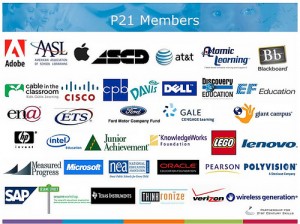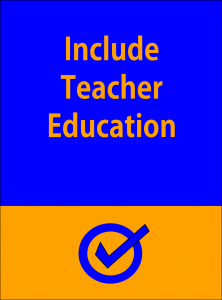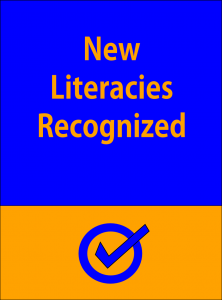Another reflection
In the previous blog entry I started to reflect on the journey I made in trying to make understanding from all the chaos surrounding learning in the 21st century. This blog entry seeks to delve deeper into the journey mentioned in that entry.
As previously stated (Last, 2012a), my journey was prompted because of seeing the term “21st century learning” used in various places, including literature and mass media. In particular Premier’s Technology Council’s (2010) [PTC], with its references to knowledge based societies, lifelong learning and project based learning, drew my attention because these issues/concepts were central to graduate courses I completed during my early time in UBC’s MET program.
 In struggling to make some meaning out of PTC I found numerous organizations and individuals who were describing and rationalizing their own versions of 21st century learning, the most prominent whom I summarized in my paper (Last, 2012b) and media presentation (Last, 2012c). Most groups’ rationalizations involved social and economic reasons for adaptation, but I was interested in what the literature had to say about these groups’ positions, especially how they aligned with current educational theory and sound pedagogical practice, and so I decided a literature review of exactly that would be useful. A literature review would be useful for myself and perhaps would contribute in some small way to helping others understand and make meaning out of the confusion caused by so many groups calling for so many similar, yet unique changes to education. So I set out to create a literature review, but found searches for “21st century learning”, “21st century schools”, “21st century classrooms” and numerous analogs using EBSCO turned up many opinion articles and blogs, but few scholarly articles supporting or refuting the positions described by the groups calling for change.
In struggling to make some meaning out of PTC I found numerous organizations and individuals who were describing and rationalizing their own versions of 21st century learning, the most prominent whom I summarized in my paper (Last, 2012b) and media presentation (Last, 2012c). Most groups’ rationalizations involved social and economic reasons for adaptation, but I was interested in what the literature had to say about these groups’ positions, especially how they aligned with current educational theory and sound pedagogical practice, and so I decided a literature review of exactly that would be useful. A literature review would be useful for myself and perhaps would contribute in some small way to helping others understand and make meaning out of the confusion caused by so many groups calling for so many similar, yet unique changes to education. So I set out to create a literature review, but found searches for “21st century learning”, “21st century schools”, “21st century classrooms” and numerous analogs using EBSCO turned up many opinion articles and blogs, but few scholarly articles supporting or refuting the positions described by the groups calling for change.
 With too few academic articles to perform a literature review, I needed to change my focus slightly, and seeing a gap existed in analyzing educational reform calls from an educational standpoint, I decided to create a framework to do just that: a framework, based on current educational theory and sound pedagogy, to be used to analyze a call for reform to evaluate its educational value. I envisioned a framework that could help schools and decision makers determine if a 21st century learning proposal was educationally valid. The framework was not meant to influence how or when change to schools took place, but to take the focus off of social and economic reasons for change and put the focus on the educational value of the change.
With too few academic articles to perform a literature review, I needed to change my focus slightly, and seeing a gap existed in analyzing educational reform calls from an educational standpoint, I decided to create a framework to do just that: a framework, based on current educational theory and sound pedagogy, to be used to analyze a call for reform to evaluate its educational value. I envisioned a framework that could help schools and decision makers determine if a 21st century learning proposal was educationally valid. The framework was not meant to influence how or when change to schools took place, but to take the focus off of social and economic reasons for change and put the focus on the educational value of the change.
In starting the framework I considered constructivism, the increasing technicalization of society, personal experiences in the classroom and personal experiences in a technical support role. Numerous articles from MET courses were read or re-read, but in the end most of the framework came from those four considerations. The four major influences gave me the basis for 10 areas which were described or mentioned in Last 2012b,  including areas of protecting basic literacy and numeracy, paying attention to digital divides, reassessing assessment, revising technical support, changing teacher education and training, changing how curriculum is viewed, ensuring learning advantages are gained, accepting new literacies, ensuring change is actual change, and examining effectiveness and efficiency in education. As can be seen, my educational technology standpoint is evident here, but I feel this is a valid standpoint, and a valid basis for evaluating educational change. I realize this framework is in its infancy and needs more work, but it is a starting point which attempts to bring educational matters back into the discussion of 21st century learning.
including areas of protecting basic literacy and numeracy, paying attention to digital divides, reassessing assessment, revising technical support, changing teacher education and training, changing how curriculum is viewed, ensuring learning advantages are gained, accepting new literacies, ensuring change is actual change, and examining effectiveness and efficiency in education. As can be seen, my educational technology standpoint is evident here, but I feel this is a valid standpoint, and a valid basis for evaluating educational change. I realize this framework is in its infancy and needs more work, but it is a starting point which attempts to bring educational matters back into the discussion of 21st century learning.
maurice
May 2012.
